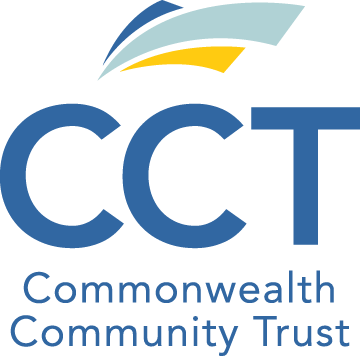Overview
Military Survivor Benefit Plan First-Party Pooled Special Needs Trust (PSNT)
A Military Survivor Benefit Plan First-Party PSNT is a trust established with annuity payments from the Survivor Benefit Plan for the benefit of a dependent child who has special needs.
CCT provides Military Survivor Benefit Plan First-Party Pooled Special Needs Trust administration services. With the passage of The Carl Levin and Howard P. “Buck” McKeon National Defense Authorization Act for Fiscal Year 2015, military members and retirees can now direct payments from a Survivor Benefit Plan to a special needs trust for the benefit of a dependent child who has special needs.
This trust does not jeopardize the beneficiary’s eligibility for Supplemental Security Income (SSI) and Medicaid and can be used to enrich the quality of the beneficiary’s life. There can be peace of mind by establishing a trust knowing that payments from a Survivor Benefit Plan will be available for the dependent child with special needs.
NOTE: A bill recently introduced in the House of Representatives, that would fix a gap in the law, and allow veterans who designated their spouse as the sole beneficiary to their Survivor Benefit Plan (SBP) prior to 2015 to amend to designate a Special Needs Trust (SNT) for the benefit of their special needs dependent.
Military Survivor
Benefit Plan
When an individual with special needs receives funds as stated above, it is important to give thoughtful consideration to the following:
Important Definitions
-
Pooled Trust
Each Beneficiary’s funds are placed in an individual sub-account. The cash assets from all sub-accounts are then “pooled” together, and are invested and managed by True Link Financial Advisors. True Link Financial Advisors is the investment manager to the Trust, not the individual beneficiaries. True Link Financial Advisors does not provide investment advice or services to the individual beneficiaries of the Trust.
Pooling the funds is intended to reduce administrative fees with the goal of increasing the principal for investment purposes. Account statements are available online and mailed quarterly.
-
Grantor
The Grantor of a First-Party PSNT can be the Beneficiary with special needs or someone acting on behalf of the Beneficiary such as the parent(s), grandparent(s), the Court or Legal Guardian.
The funds are the Beneficiary’s own funds from a personal injury award, workers’ compensation claim, Social Security back payment, inheritance, or savings.
-
Beneficiary
The Beneficiary is someone with special needs for whose benefit the trust was created.
-
Advocate
The Advocate(s) is an important part of the Beneficiary’s team and works closely with CCT staff. The Advocate(s) is authorized to make disbursement requests by signing and submitting the Payment Request Form to CCT and may receive confidential financial information about the Beneficiary’s sub-Account.
The Advocate(s) is usually named by the Grantor(s) on the CCT Joinder Agreement (the legal document to join the trust), and may be the Beneficiary, a Guardian, Conservator, Power of Attorney, family member, case worker, friend, and/or someone who is trusted and familiar with the needs of the Beneficiary.
However, CCT has sole discretion to decide what distributions are in the Beneficiary’s best interest and permitted under the terms of the trust, as well as when to share information.
The following outlines the Military Survivor Benefit Plan First-Party Pooled Special Needs Trust with CCT:
- Irrevocable once established
- Funded with payments from a Survivor Benefit Plan for the benefit of a military member’s dependent child who has special needs
- Protects Medicaid and SSI
- Upon the beneficiary’s death, requires payback to Medicaid for Medicaid benefits the beneficiary received during his or her lifetime
- Funds are for the sole benefit of the beneficiary
- By law, must be set up as a first-party funded special needs trust (due to the Medicaid payback provision)
- Funds are pooled for investment purposes

How Funds in the Trust Can Be Used
The funds can be used to pay for expenses that will enhance the quality of life for the Beneficiary.
Disbursements can be requested from the trust by a Primary or Secondary Advocate.
Bills are paid by check to vendors or reimbursed to the Advocate or in certain circumstances a credit card is made available and funded by the Beneficiary’s trust account.
For more information, see our Disbursement Information Manual.
-
Disbursement requests are reviewed and approved based on the following criteria:
- Whether eligibility for benefits such as SSI and Medicaid would be jeopardized
- Whether the request is for the sole benefit of the Beneficiary
- Whether the request is prudent
-
Examples include, but are not limited to:
- Medical and Dental Services not covered by insurance
- Assistive Technology
- Eyeglasses, Hearing Aids, and Prosthetic Devices
- Pre-paid Burial Expenses
- Computer and Internet Services
- Education Expenses
- Caregiver Expenses
- Home Modifications
- Clothing and Furniture

Are you ready to set up a trust?
Visit the Process of Joining for detailed steps in setting up a pooled trust with CCT.
Dan, Brother and Advocate of a CCT Beneficiary
"CCT has been a blessing to our family. CCT has provided a sense of order, organization, trust, and leadership in helping to provide and protect the well-being of my younger sister. I would recommend CCT to anyone, and I already have." — Dan, Brother and Advocate of a CCT Beneficiary

Dustin, CCT Beneficiary
"I have had nothing but exceptional service from this company, they take their time to help with my needs and make sure I have what I need." — Dustin, Beneficiary of CCT
Cathy, CCT Beneficiary
"With the help of CCT I was able to purchase my Dream vehicle. Emily at CCT was/is a HUGE help! It was a very smooth transaction." — Cathy, Beneficiary of CCT
Grandmother of Beneficiary Kobe
"CCT made getting the wheelchair equip van we so much needed for our grandson the easiest purchase ever. Thank you CCT!!!" — Grandmother of Beneficiary Kobe
Rhonda, Mother and Advocate of a CCT Beneficiary
"CCT has been amazing. Very helpful with guiding us through this process." — Rhonda, Mother and Advocate of a CCT Beneficiary
Nancy, Grandmother and Advocate of a CCT Beneficiary
"CCT has been wonderful in serving the financial needs of my grandson. They are always prompt in answering questions and suggesting how we can make something happen for him. He just turned 18 this year and we still plan on using this service." — Nancy, Grandmother and Advocate of a CCT Beneficiary
Dan, Brother and Advocate of a CCT Beneficiary
"CCT has been a blessing to our family. CCT has provided a sense of order, organization, trust, and leadership in helping to provide and protect the well-being of my younger sister. I would recommend CCT to anyone, and I already have." — Dan, Brother and Advocate of a CCT Beneficiary
Dustin, CCT Beneficiary
"I have had nothing but exceptional service from this company, they take their time to help with my needs and make sure I have what I need." — Dustin, Beneficiary of CCT
CCT
Trusts
Professionals
Clients

*Disclaimer Statement: CCT is not a chartered bank or trust company, or depository institution. It is not authorized to accept deposits or trust accounts and is not licensed or regulated by any state or federal banking authority.
All Rights Reserved | Commonwealth Community Trust
